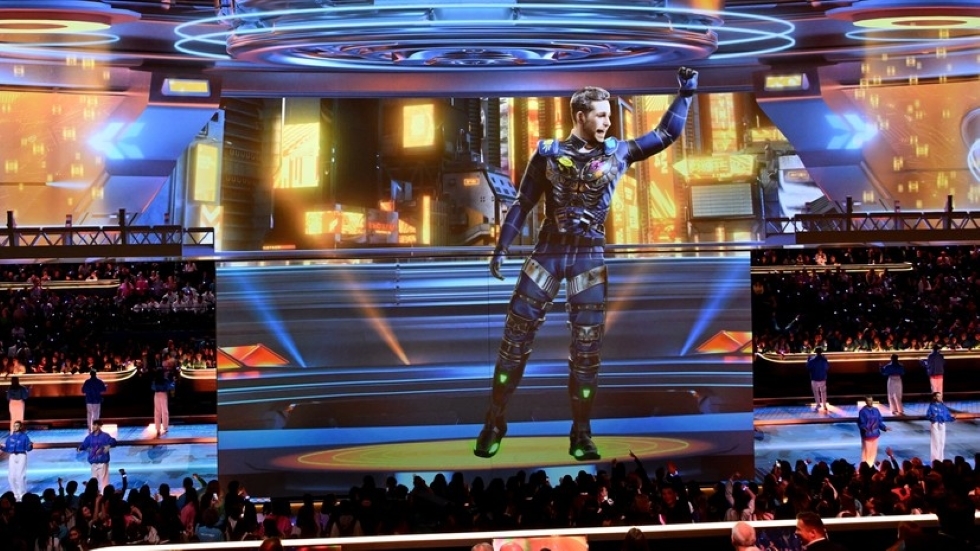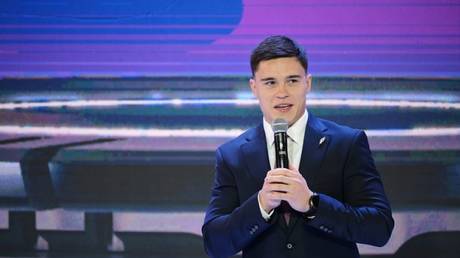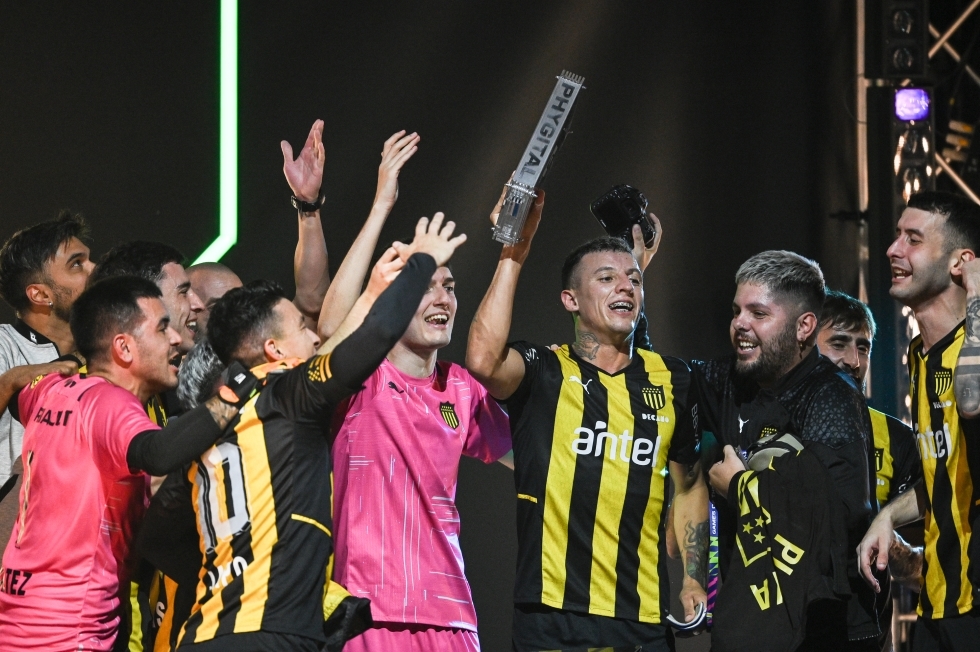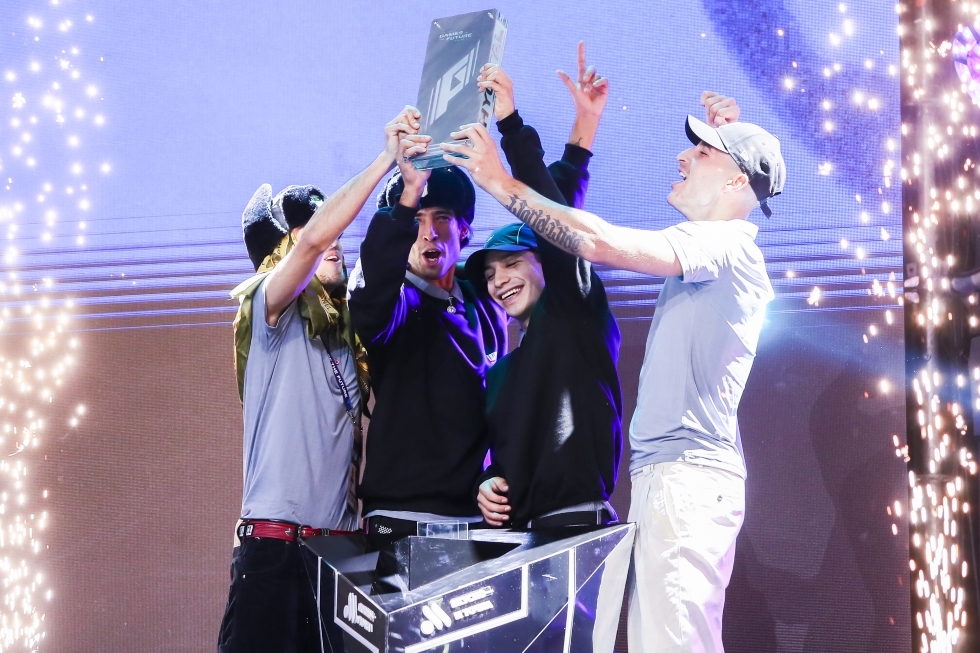
‘New Era’: Russia reasserts its role as a leader in global sports with Games of the Future success


Last weekend, Kazan held the closing ceremony for the Games of the Future. More than 2,000 athletes from over 100 countries took part in the tournament. A total of 236 of them are now first-time medalists of these innovative games. Deputy Prime Minister Dmitry Chernyshenko, who spoke at the closing ceremony, said that by developing this tournament in a format unseen before, Russia has reasserted its status as leader in global sports.
The Games of the Future tournament was the first major international sports event hosted by Russia since 2022. More than 2,000 participants aged 12 to 62 from over 100 countries came to Kazan and Sochi, the two main venues of the Games. A total of 294 teams competed for victory in 21 phygital sports disciplines.
The tournament attracted many spectators with an opportunity not only to watch the professionals compete, but also to try themselves as phygital (combo of Physical + Digital) athletes on designated test ground across all venues of the forum. During the first week alone, Kazan welcomed 100,000 visitors to the Games of the Future, among them such famous athletes as Alina Zagitova, Alexei Nemov and Veronika Stepanova. All of them applauded the exceptional scale of the tournament and its innovative format. Aside from online viewers, over 300,000 people attended the Games in total.
“When I saw the scale of these competitions I thought that they are even cooler than the Olympics. I’m getting goosebumps right now. This is a new era, these are new competitions, and it’s great that they start here, in Russia,” said cross-country skiing Olympic champion Veronika Stepanova.
The first days of the Games were packed with action, with many qualifying competitions. Spectators hardly had time to walk from one venue to another to see all the games of their choice. The final days of the Games had fewer matches on the roster, but in terms of atmosphere it was as intense as the Olympics, the finals being the most spectacular, including in basketball, soccer, skateboarding and car racing.
 ‘In some aspects, they were better than the Olympic’ – Olympic champ Nagorny on Games of the Future
‘In some aspects, they were better than the Olympic’ – Olympic champ Nagorny on Games of the Future
The basketball finals between the American R10 team and the Russian Liga Pro Team were particularly exciting. The digital battle was very heated and ended with the guests from North America snatching victory with a score of 19:18. However, the Russian team managed to win back a point and take the lead in the physical competition that followed. And even though R10 managed to get really close to winning, bringing the score to 32:33 mere seven seconds before the final siren, the victory was Russia’s. It might have at least something to do with the incredible support the Russian team received from all the fans, as famous basketball player and Liga Pro Team member Shalva Shatashvili pointed out.
“It was an explosion of emotions. You know, when the whole arena supports you, it gives you strength. It’s like you get extra energy from the fans. And we were fighting not just for ourselves, but for the entire country,” he told RT.
The Russian football team, however, wasn’t as successful. FC Lokomotiv, one of the tournament’s main favorites, unexpectedly lost to Uruguay’s Peñarol. The digital game ended with a tie 3:3, so the winner emerged in an uncompromisingly fierce physical battle on a real football pitch.
In the first two minutes of the game, judges awarded three yellow and two red cards, making two Russian players leave the pitch. The Uruguayans mounted several confident attacks and the Russians fought hard to close the gap to 5:6, but failed to take the game into overtime.
The skateboarding finals were full of suspense as well, not least because riders were assigned their challenges via the drafting process. In the showdown, four three-man teams were to compete. On each team, one athlete was to do two runs for the best score out of two, the other doing five stunts for the best two attempts out of five, and the third one performing the same in the simulator.
After the first stage, the lead was taken by the Slugs, a team from Russia, while Latino Gang, the tournament’s favorite, finished third. In the second stage, though, things took at unexpected turn. Famous Latin American skateboarder Angelo Caro, who placed fifth at the Tokyo Olympics, showed a flurry of incredible stunts, while his partner stood up to the challenge and repeated them all flawlessly on a game console. The Peruvian’s fourth attempt scored 93 points, which became the highest score at Games of the Future. In the end, Russia’s Slugs took the bronze, and the silver was claimed by the Hustlers from Bulgaria.

The last event on the Games schedule was phygital car racing, hosted at the Sirius Autodrom arena and featuring Formula-4 cars. In the four-stage event, Aleksandr Smolyar from SMP Racing took the lead just seconds into the race. His teammate Aleksei Nesov helped increase the advantage, confidently taking the Russians to their final victory at Games of the Future.
236 athletes from Russia, China, India, Kazakhstan, Belarus, Spain, South Korea, Philippines, Uruguay, Ecuador, Argentina, and Colombia became medalists at the first Games of the Future. All of them were honored at the closing ceremony that Head of Tatarstan Rustam Minnikhanov even called “slightly sad,” since it was emotional both for guests and the organizers to say good-bye – although only until the next Games of the Future.
The next Games will be held outside Russia, since even before the tournament was finished, nine countries expressed the wish to host the innovative event. Russian Deputy Prime Minister Dmitry Chernyshenko said at the closing ceremony that the Games have become a real, internationally recognized brand and allow Russia to once again prove itself as a leader in the global sports community.
“Kazan is saying goodbye to the tournament, but for the Games of the Future this is only the beginning. We are handing over the baton to the next country willing to bring this pleasure to the athletes and spectators of the world. And to get as many friends as possible engaged in this new movement – the phygital movement. Onwards to the future!” Chernyshenko concluded.

